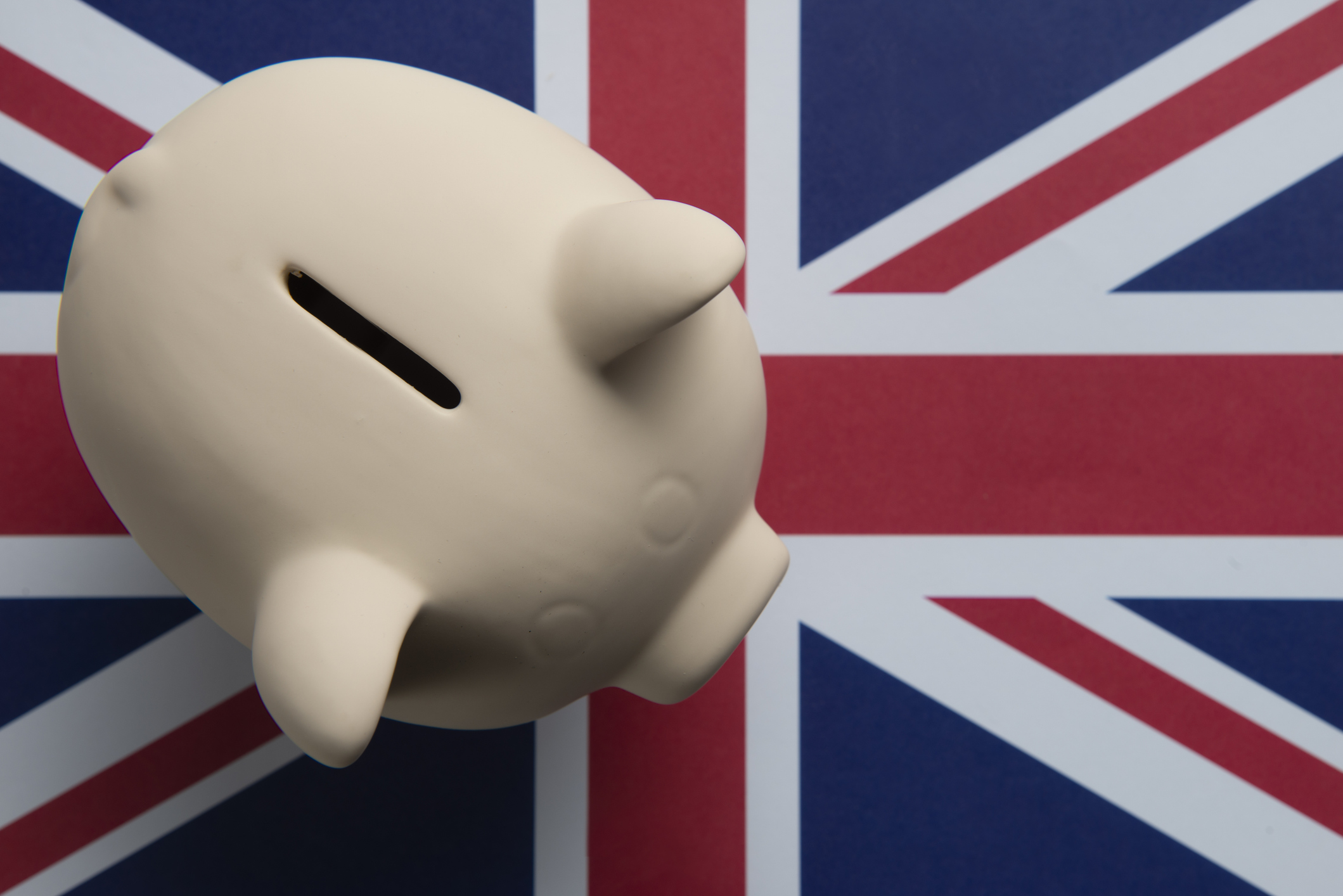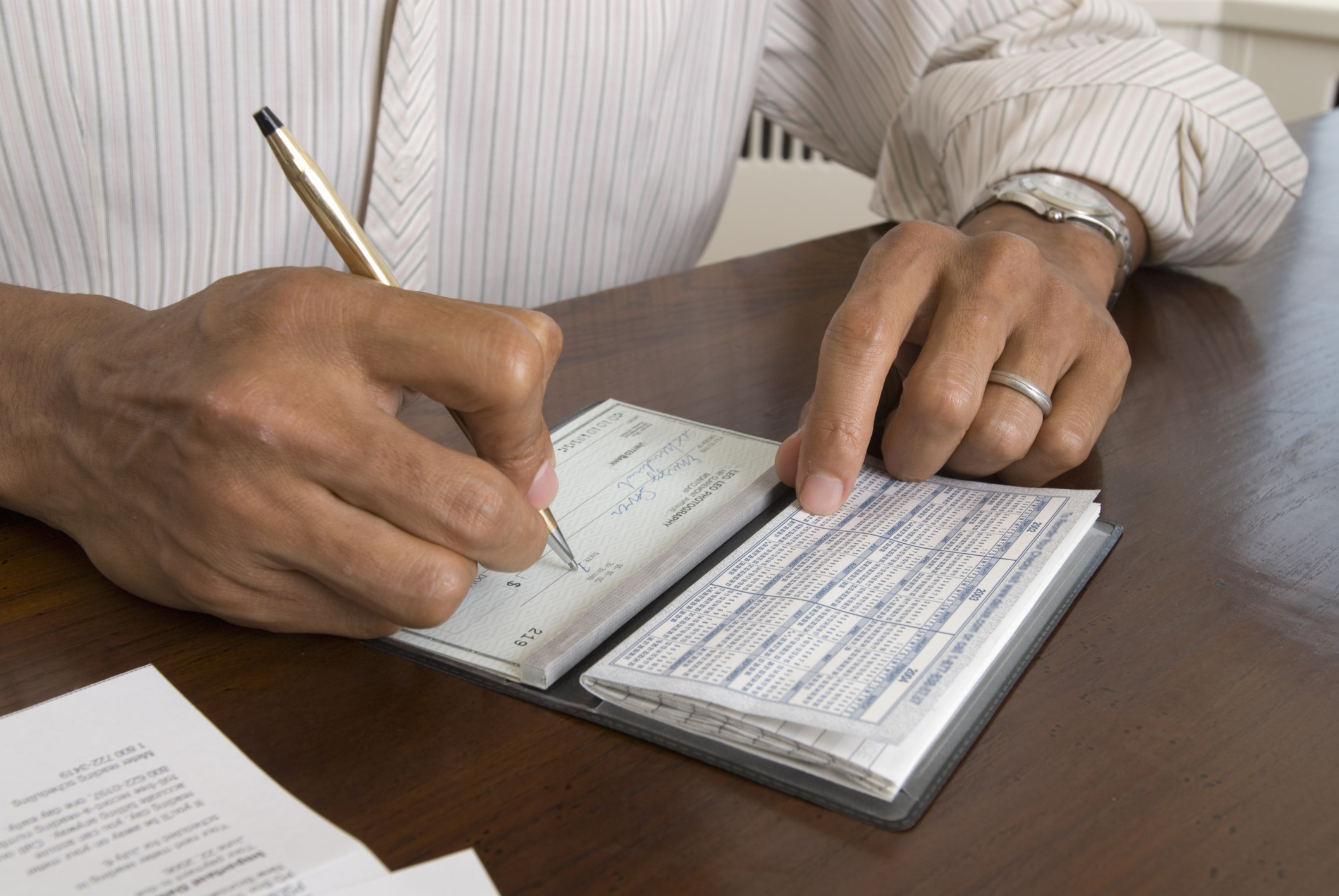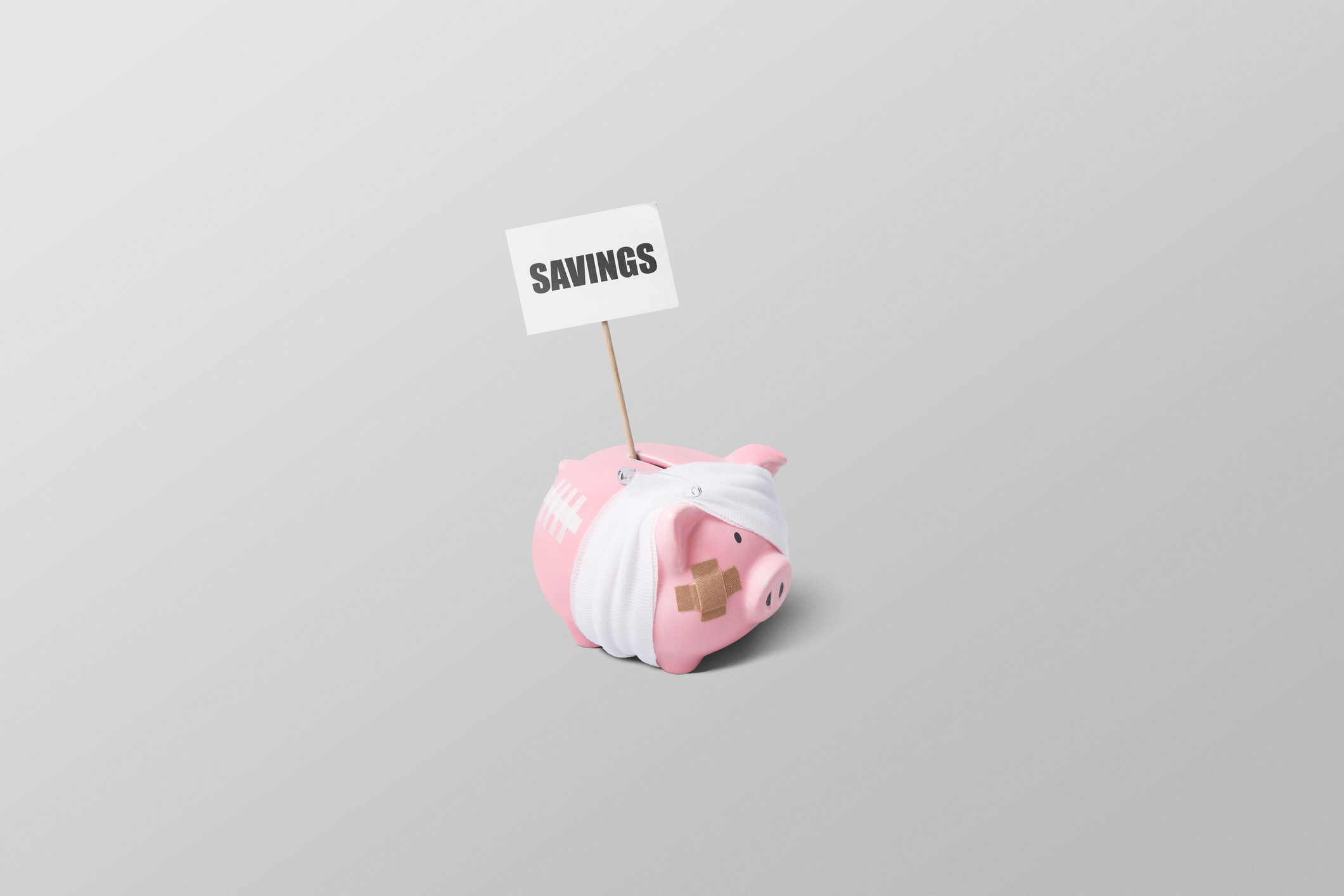Brits leave £31.6 billion in savings accounts paying 1% interest or less – do you need to switch?
Eight million Brits hold money in savings accounts that pay 1% interest or less, meaning the value of their cash is being eroded by inflation.


Get the latest financial news, insights and expert analysis from our award-winning MoneyWeek team, to help you understand what really matters when it comes to your finances.
You are now subscribed
Your newsletter sign-up was successful
Want to add more newsletters?

Twice daily
MoneyWeek
Get the latest financial news, insights and expert analysis from our award-winning MoneyWeek team, to help you understand what really matters when it comes to your finances.

Four times a week
Look After My Bills
Sign up to our free money-saving newsletter, filled with the latest news and expert advice to help you find the best tips and deals for managing your bills. Start saving today!
Tens of billions of pounds have been left languishing in savings accounts that earn paltry interest rates, meaning hoards of cash are slowly losing value in real terms, new research has revealed.
Around £31.6 billion are sitting idle in UK adult savings accounts earning 1% interest or less, with savers missing out on hundreds from interest payments, according to savings app Spring, a part of Paragon Bank.
The best easy-access savings account on the market, currently the Zopa Smart Saver, has an interest rate of 4.75% for the first 12 months.
MoneyWeek
Subscribe to MoneyWeek today and get your first six magazine issues absolutely FREE

Sign up to Money Morning
Don't miss the latest investment and personal finances news, market analysis, plus money-saving tips with our free twice-daily newsletter
Don't miss the latest investment and personal finances news, market analysis, plus money-saving tips with our free twice-daily newsletter
The rise in the overall balance of accounts earning 1% or less in interest surged by 578% (over £27 billion) between January and July this year.
Meanwhile, the number of individual accounts with such low interest rates rocketed by 370% to eight million by the end of July. This is up from just under two million at the beginning of 2025.
The strikingly low interest rates on these accounts mean the savings are not keeping up with inflation and therefore losing its purchasing power.
The annual rate of inflation in the UK in September was 3.8%, remaining at July’s 18-month high.
While inflation has been far above the Bank of England’s target of 2% for most of 2025, even if price growth was kept under control, these accounts would still see their balances erode by around 1% a year in real terms.
Derek Sprawling, head of money at Spring, said: “The scale of money sitting in accounts earning 1% or less is truly eye-opening. Savers with significant balances are seeing their money eroded by inflation, when it could be working much harder elsewhere.”
Sprawling said that while a “small proportion” of accounts hold the majority of these low-earning balances, “millions of people are missing out on the benefits of switching to a more rewarding savings account without suffering meaningful downsides”.
Poor interest rates rife among rich Brits
The plague of low interest rate accounts is especially impacting those with a significant amount in savings.
Spring found £24.5 billion (77%) of the total amount languishing in low interest accounts is in accounts holding at least £10,000.
Having a large savings balance in an account with a low interest rate is especially stark, as it means you are missing out on more substantial returns.
For example, the difference between a balance of £100 earning 1% and 5% is just £4 in lost interest. Meanwhile, a gap of £400 exists when this account balance grows to £10,000.
What are the best savings accounts on the market?
Zopa’s Smart Saver is the best easy-access saver on the market, paying 4.75% interest on your savings for the first 12 months. After this, the interest rate falls to 3.31%.
The second-best easy-access saver is Chase’s Saver with boosted rate, paying 4.5% for the first 12 months, before falling to 2.56%.
If you are happy to lock your cash away in return for a guaranteed interest rate, the best fixed term savings account on the market is from AL Rayan Bank, which pays 4.56% interest.
Get the latest financial news, insights and expert analysis from our award-winning MoneyWeek team, to help you understand what really matters when it comes to your finances.

Daniel is a financial journalist at MoneyWeek, writing about personal finance, economics, property, politics, and investing.
He covers savings, political news and enjoys translating economic data into simple English, and explaining what it means for your wallet.
Daniel joined MoneyWeek in January 2025. He previously worked at The Economist in their Audience team and read history at Emmanuel College, Cambridge, specialising in the history of political thought.
In his free time, he likes reading, walking around Hampstead Heath, and cooking overambitious meals.
-
 Should you buy an active ETF?
Should you buy an active ETF?ETFs are often mischaracterised as passive products, but they can be a convenient way to add active management to your portfolio
-
 Power up your pension before 5 April – easy ways to save before the tax year end
Power up your pension before 5 April – easy ways to save before the tax year endWith the end of the tax year looming, pension savers currently have a window to review and maximise what’s going into their retirement funds – we look at how
-
 Buying vs renting: is is better to own or rent your home?
Buying vs renting: is is better to own or rent your home?The higher mortgage rates of recent years have actually made renting comparatively cheaper, analysis suggests. But there are hidden costs to long term renting.
-
 Hargreaves Lansdown launches first cash ISA – how does it compare?
Hargreaves Lansdown launches first cash ISA – how does it compare?Hargreaves Lansdown is offering an own brand cash ISA for the first time with their new easy-access account. How does the interest rate compare to other products?
-
 Is Britain heading for a big debt crisis?
Is Britain heading for a big debt crisis?Opinion Things are not yet as bad as some reports have claimed. But they sure aren’t rosy either, says Julian Jessop
-
 ‘My NS&I one-year British Savings Bond is maturing – what should I do with my savings?
‘My NS&I one-year British Savings Bond is maturing – what should I do with my savings?Thousands of savers will see their fixed-rate savings accounts mature next month. We consider whether you should stick with NS&I or move to a competitor
-
 How to pay in a cheque
How to pay in a chequeReceiving or writing a cheque has become much less common in recent years as instant bank transfers have grown in popularity. Amid widespread bank branch closures, we explain what to do if you get a cheque, and how you can pay one into your bank account.
-
 ‘Current account coasters’ are leaving billions of pounds languishing in low interest accounts
‘Current account coasters’ are leaving billions of pounds languishing in low interest accountsThe average saver with £10,000 or more in their zero interest current account is missing out on over £1,500 in potential interest payments, new research has revealed.
-
 Best fixed rate cash ISAs – earn up to 4.22%
Best fixed rate cash ISAs – earn up to 4.22%We look at the best fixed rate cash ISAs on the market right now for savers who are willing to lock their cash away for guaranteed tax-free gains
-
 Best inflation-beating savings accounts to make your money work hard
Best inflation-beating savings accounts to make your money work hardInflation rose in December, but is forecast to fall in 2026. We list some of the top savings accounts in terms of rates, where your money will grow in real terms.